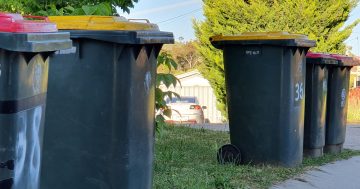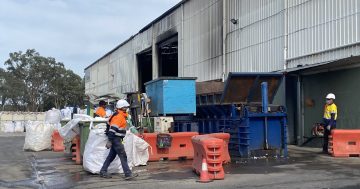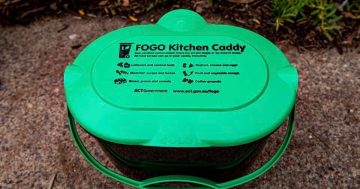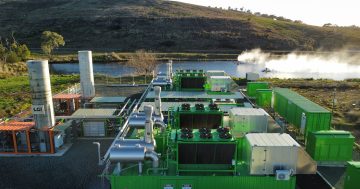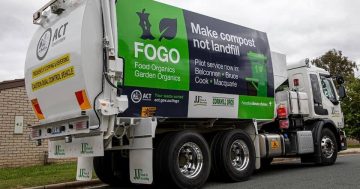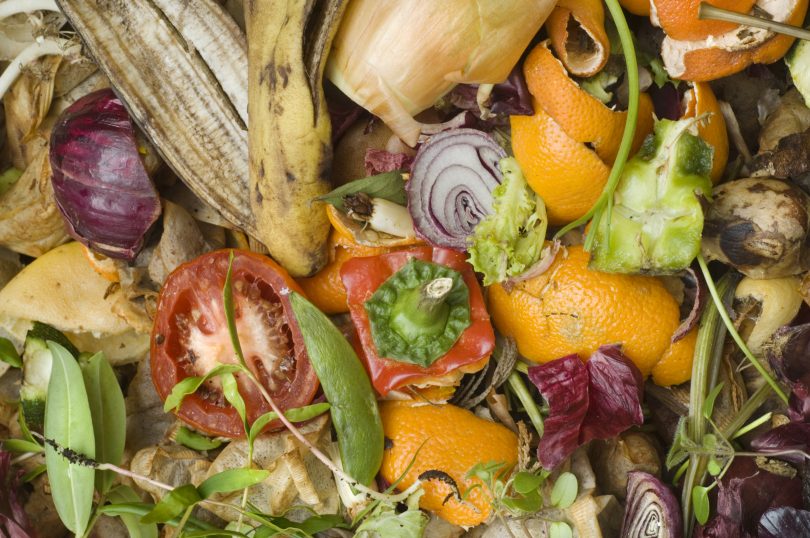
Currently 37 per cent of our garbage bins is food waste and it’s going into landfill. Photo: File.
The ACT Government is developing a scheme to stop 15,000 tonnes of food waste from local hospitality and food retail businesses ending up in the ACT’s landfill each year.
The ACT Government said its proposed scheme will require large producers of organic waste, like cafes and restaurants, to have a mandatory, separate collection of organic food waste in line with other cities around the world.
Around 117,000 tonnes of commercial and industrial waste was sent to landfill in the ACT in 2017–18, around 13 per cent (approximately 15,000 tonnes) was organic food waste.
The ACT Climate Change Strategy 2019-2025 said the ACT Government will develop and consult on the food waste collection scheme by 2023.
“Collecting organic materials separately to other waste streams is the most effective way to divert them from landfill,” the strategy read. “Diverting these materials from landfill will help to reduce emissions as well as make better use of these materials to improve soils.”
In 2009, San Francisco introduced a law requiring all residents and businesses to separate organic materials for collection and composting, while Vancouver banned residents and businesses from disposing of food waste into landfill in 2015.
Closer to home, the City of Melbourne introduced food waste recycling in its iconic Degraves Street, diverting around 130 tonnes of food waste each year. Two-and-a-half tonnes of food scraps from 90 businesses in the precinct are dehydrated and turned into fertiliser each week, then spread on parks and gardens throughout the city.
City Services Minister Chris Steel said he is keen to work with key stakeholders and the community to explore options to collect organic waste from homes and hospitality businesses.
“Now that we have 100 per cent renewable electricity, waste will be the third-largest source of emissions,” Mr Steel told Region Media. “We’ve rolled out a garden waste collection service to the whole of Canberra and now we’re doing the work necessary for a food organics service to divert food from landfill.
“Currently, 37 per cent of our garbage bins is food waste and it’s going into landfill. Food waste is actually a really valuable resource, and there are great opportunities to use this resource better, to grow the food of the Canberra region and help reduce emissions at the same time.”
Mr Steel said $973,000 was allocated in the 2019-20 ACT Budget to undertake a pilot food waste avoidance campaign next year targeted to households, as well as a feasibility study into the delivery of a food organics and garden organics processing site and facility.
Organic materials such as food scraps and garden waste break down in the landfill and release methane, a potent greenhouse gas. The ACT landfill at Mugga Lane is fitted with a facility that captures 70 per cent of methane and uses it to generate electricity. The remaining 30 per cent of methane escapes into the atmosphere.
When the ACT has zero electricity emissions, the strategy says waste treatment will account for four per cent of emissions.
Mr Steel said the ACT Government is working with federal, state and territory counterparts on the implementation of the 2017 National Food Waste Strategy. The strategy aims to halve food waste in Australia by 2030.













